'Sgt Liddell remained in his exposed position, which was now attracting fire, with complete disregard for his own safety and attempted to eliminate the machine gun with his grenades, at the same time waving to the platoon to advance…'
‘With utter disregard for his personal safety, he carried the wounded man to a ditch, helped to dress his wounds and personally helped him back to the nearest aid post…’
These vivid accounts of bravery might read like heroic scenes from dramatic war films, but they’re accounts of real soldiers’ lives – just a few glimpses of the awe-inspiring histories behind every antique military medal.
Why you should collect antique military medals and ribbons
Awarded for military service, military medals have been given to those working in the Air Force, army and navy, as well as in adjacent healthcare fields.
‘The aesthetics of medals appeal but, for most collectors – myself included – it’s the history of the recipient that really excites,’ explains Adam Chapman, medal dealer at Harland Military Antiques, collector and consultant at Duke’s Auctioneers.
‘When somebody puts a set of medals on your desk and you start to research the person who was awarded them, you often uncover an incredible story. It’s like being a detective.’ Adam has been hooked on antique medals since he was six, when his grandparents let him rifle through a large box of garage ‘junk’ destined for the tip and he found a number of medals from his grandfather’s RAF days. This sparked a hobby that evolved into a career and a ‘lifelong addiction’.
Expert medal dealer Chris Dixon of Dixons Medals has been obsessed with medals for a long time, too – 55 years, in fact. ‘I bought my first medal – a Waterloo one – for £5 when I was 21,’ he recalls. ‘I’d just opened my first shop. I sold it a few days later for £7 and I was hooked from that moment onwards.’
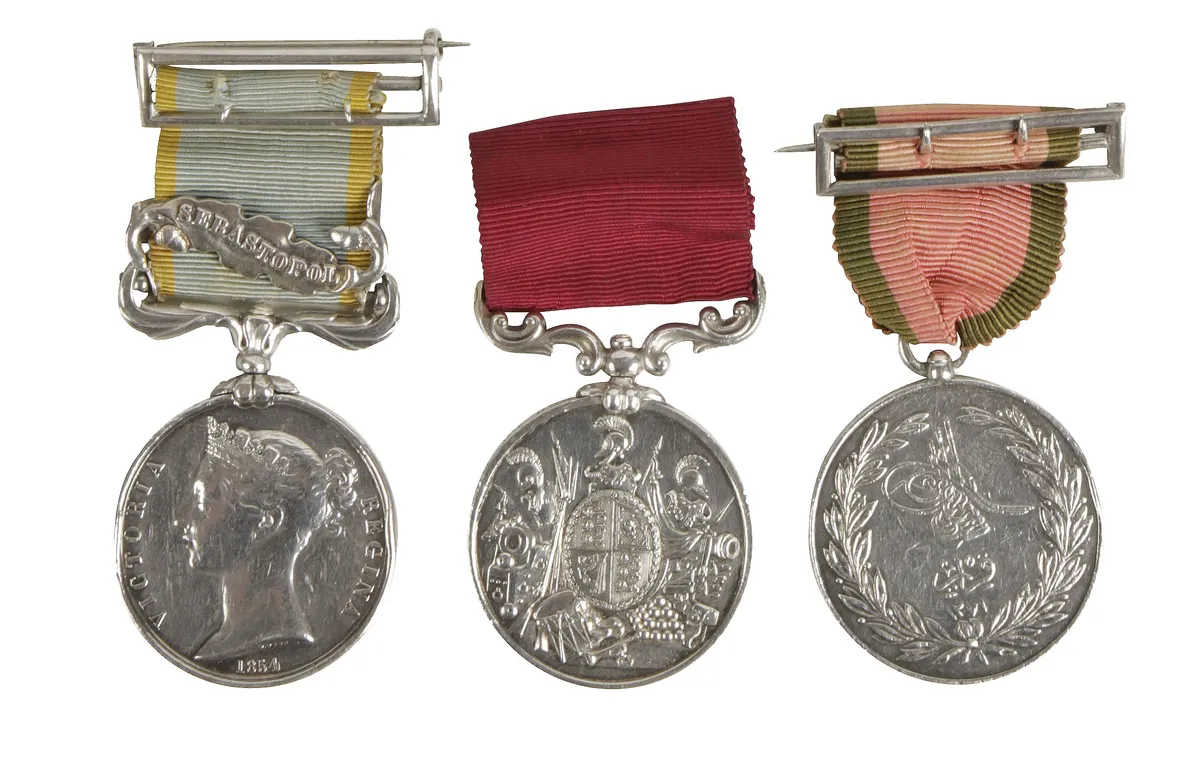
Finding out the provenance of a military medal
Like Adam, Chris is passionate about the research aspect of dealing and collecting medals. ‘My office has floor-to-ceiling reference books on three walls. If we buy a Waterloo medal today, we can check the recipient on the roll to see which officer’s battalion he served in. Second World War records are still slowly being released. Nothing information-wise post 1946 is available but,prior to that, you can find detailed service records, so if the recipient served in the First World War, you can go online and find out all about them.’
A lot of serious collectors are ex-military or ex-forces with a personal passion for medals, but interests vary. ‘Some just collect army, navy or RAF medals,’ explains Chris. ‘Within those genres, some collectors want one example of each type of medal with one of each type of clasp – the term for the small metal strips that were often attached to the medal with the name of the place where the recipient saw action.’
Why you should collect medal sets
As well as single medals, sets of medals belonging to an individual are popular with collectors, as you can build up a full picture of the recipient’s time in service.
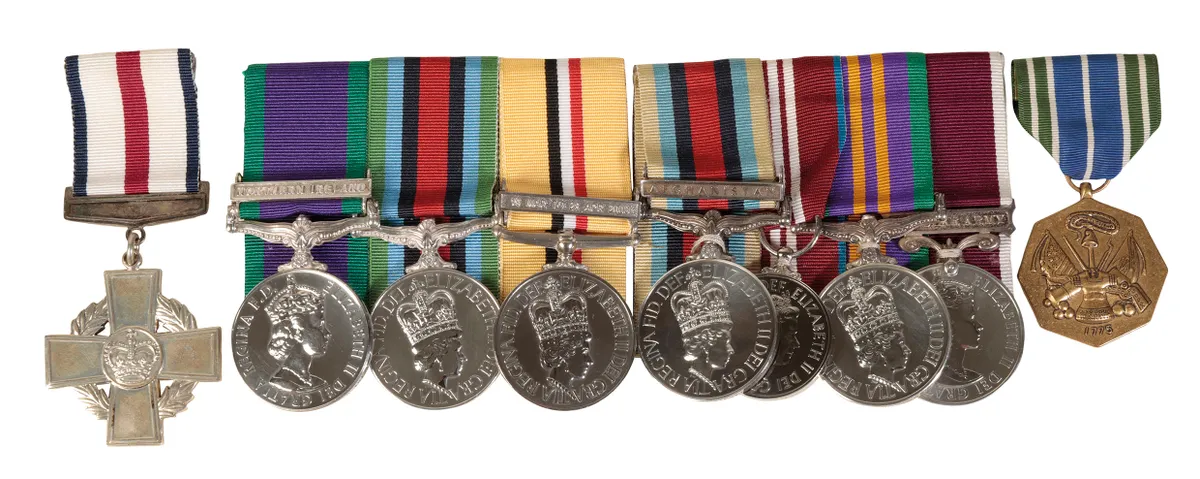
What is the rarest military medal and what is it worth?
The Victoria Cross is extremely rare and can fetch huge sums. One recently sold at auction for about £330,000.
‘We’ve handled eight or nine Victoria Crosses over the years,’ says Chris. ‘They are extremely rare and can fetch huge sums. The last one that came up was sold at auction for about £330,000.’ At the other end of the spectrum, a single, campaign medal can cost as little as £65–£85.
Military decorations such as ‘Orders’ are a genre of their own. Often awarded for bravery in war, the Orders such as the Most Noble Order of the Garter or the Most Honourable Order of the Bath are always of interest.
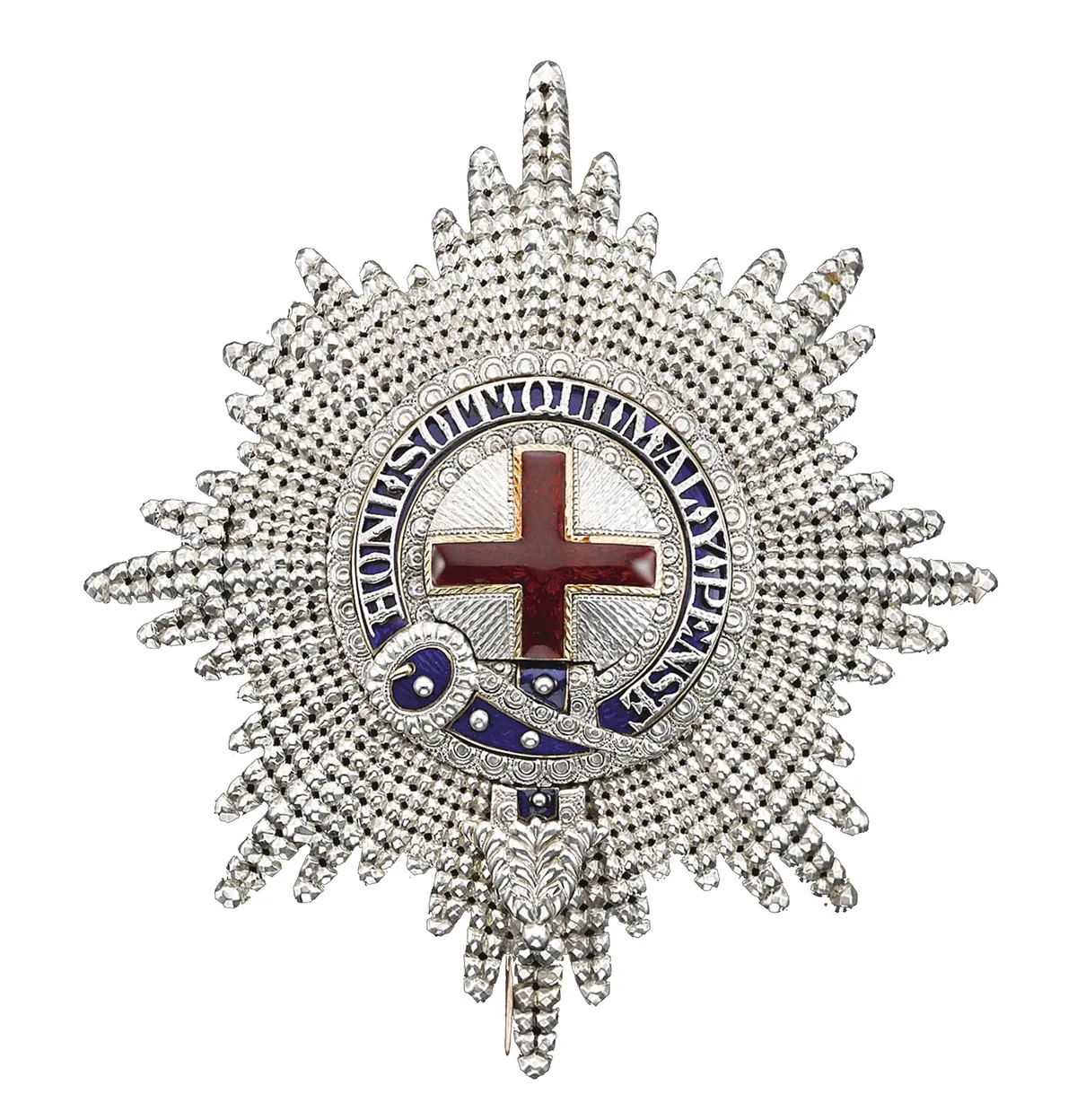
Order of military medals: what are the most important?
Although the US has its own range of military medals, we're going to focus on the military medals awarded for service in the UK military.
Here are the top military medals awarded in order of precedence, starting with the most prestigious award, the Victoria Cross.
- Victoria Cross
- George Cross
- Conspicuous Gallantry Cross
- Royal Red Cross (Class I) (awarded for nursing duties)
- Distinguished Service Cross
- Military Cross
- Distinguished Flying Cross
- Air Force Cross
- Royal Red Cross (Class II) (awarded for nursing duties)
- George Medal
- Queen's Gallantry Medal
- Queen's Volunteer Reserves Medal
How to find the most valuable military medals
Provenance is everything when it comes to collecting military medals – rarity and service history are the factors that affect value. ‘This might sound strange, but the same set of medals can have vastly different values, depending on the life story of the recipient who received them,’ reveals Adam. ‘One of the most common sets of First World War medals is known as the ‘14–15 trio’ which consists of a 1914–1915 star, a British War medal and a Victory medal. If that trio had belonged to somebody who had served in the Royal Artillery, it might be worth about £60. If it belonged to somebody who had served in the Durham Light Infantry, it would be worth £85. If that man had been killed in action in May 1916, the value would go up to about £185 and if he’d been killed on 1st July 1916 (the first day of the Somme) they’d be worth £600–£700.’
Military medal chart
The various military awards and decorations of the United Kingdom recognise service and personal accompaniments of individuals serving in the British Army or Royal Air Force. They are also awarded by other countries and nations around the world.
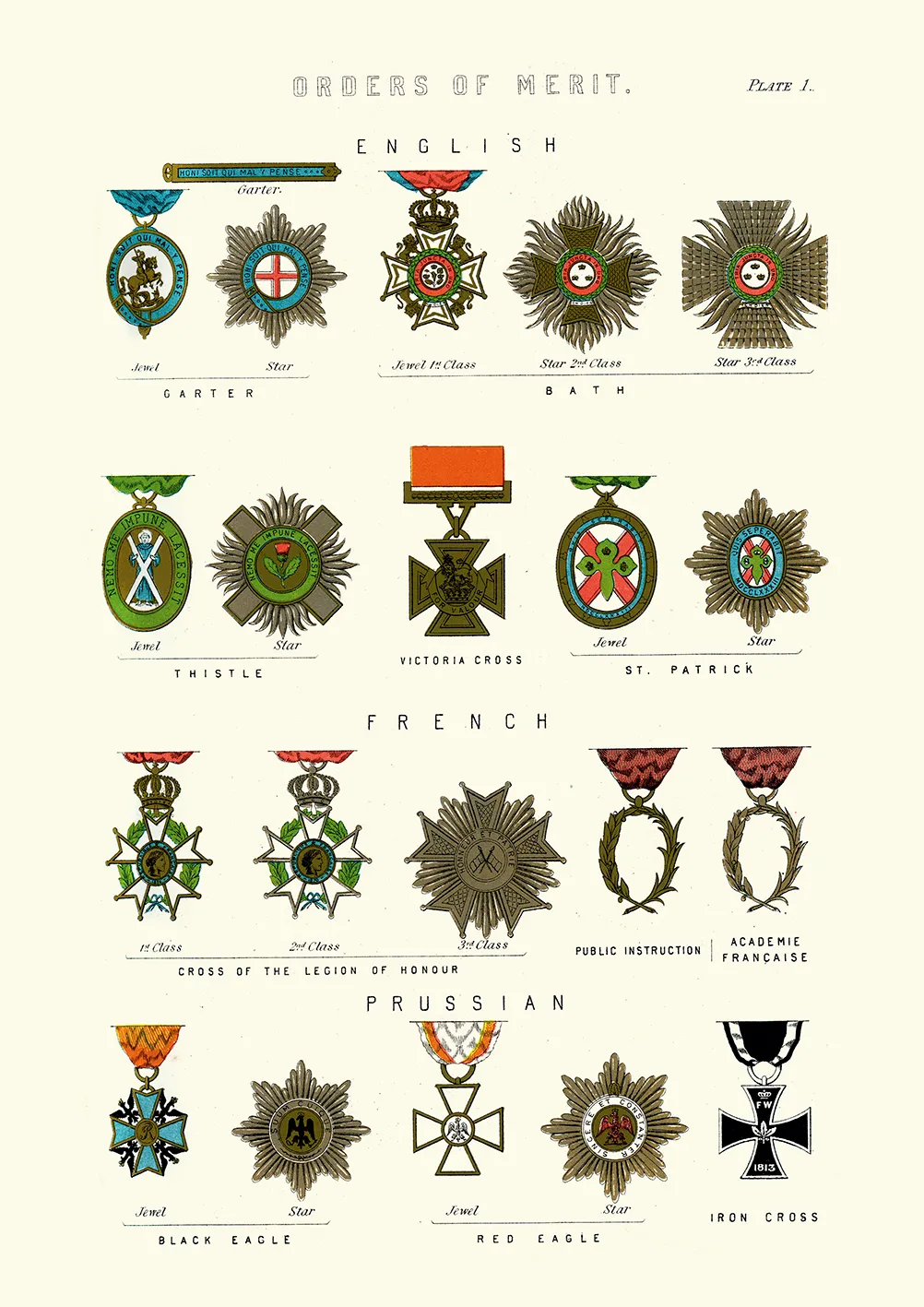
Fake military medals: how to spot a fraudulent medal
Look for evidence of 'R' removal
Fraudsters sometimes grind the name off a medal and put another name on. ‘If a veteran loses a medal, they get sent a replacement (with an ‘R’ for ‘replacement’ on it), but sometimes the ‘R’ is filed off in order to sell them for full value in an original set,’ says Adam. ‘If you have an eyeglass or a USB microscope and you know what you’re looking for, you can see the file marks and evidence of previous lettering underneath.’
Check the medal's clasps
Another dirty trick is to add extra clasps to medals in order to increase their value. Chris was conned in this way in the early days of his career. ‘Crooks sometimes did part exchanges with medals that had better clasps on them than they were entitled to have,’ he recalls. The most common clasp is the ‘SYRIA’ one in the naval general series. ‘I bid for an American action medal with the clasp: ‘POTOMAC 17 AUG 1814’ at auction recently for a Canadian client and it sold for £18,500, but if the same medal had had a ‘SYRIA’ clasp, it would have only been worth about £800, unless the recipient had done something special,’ explains Chris. Rank is another factor that influences value: ‘If the recipient had been an officer, it would have doubled in value to £1,600.’
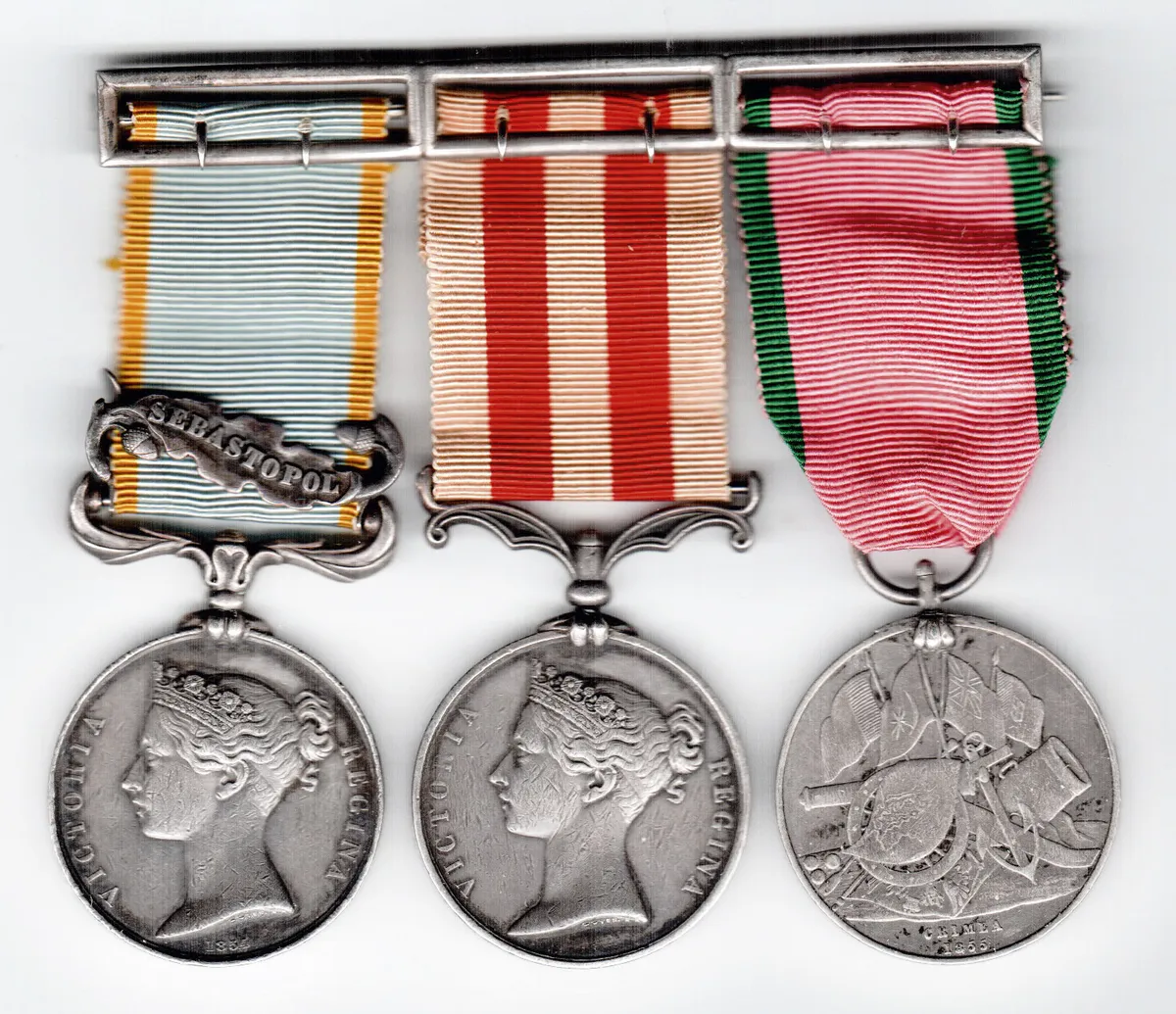
Nurses' medals
It wasn’t just soldiers – or men – who were awarded medals. Nurses who were working abroad at hospital stations bravely caring for servicemen who had been injured were often recognised, too. ‘The outstanding ones were made associates of the Royal Red Cross. After that, they were awarded the First Class Cross,’ says Chris, who has a rare nursing service group in stock for £850, including a large silver medal to ‘Miss Gladys Hope-Lucas’, plus letters, birth and death certificates and photos.
Top tips for collecting war medals
Always buy from a reputable dealer because conmen can alter medals – adding extra clasps, filing off names etc. These adjustments are hard to spot unless you have years of experience and the right tools.
Join a medal club so you can show experienced collectors what you are buying and ensure your medals have not been tampered with.
Use a Medal Tracker to find family medals – the publisher of Medal News has a useful service online at tokenpublishing.com/medaltracker.
Keep medals in protective plastic packets and avoid humidity. The ribbons are silk and can fade in direct sunlight, so keep them somewhere cool and dark.
How much are military medals worth?
Price varies according to rarity and service history, but expect to pay £65–£85 for a single campaign medal. Rarer or desirable groups of medals can fetch thousands.
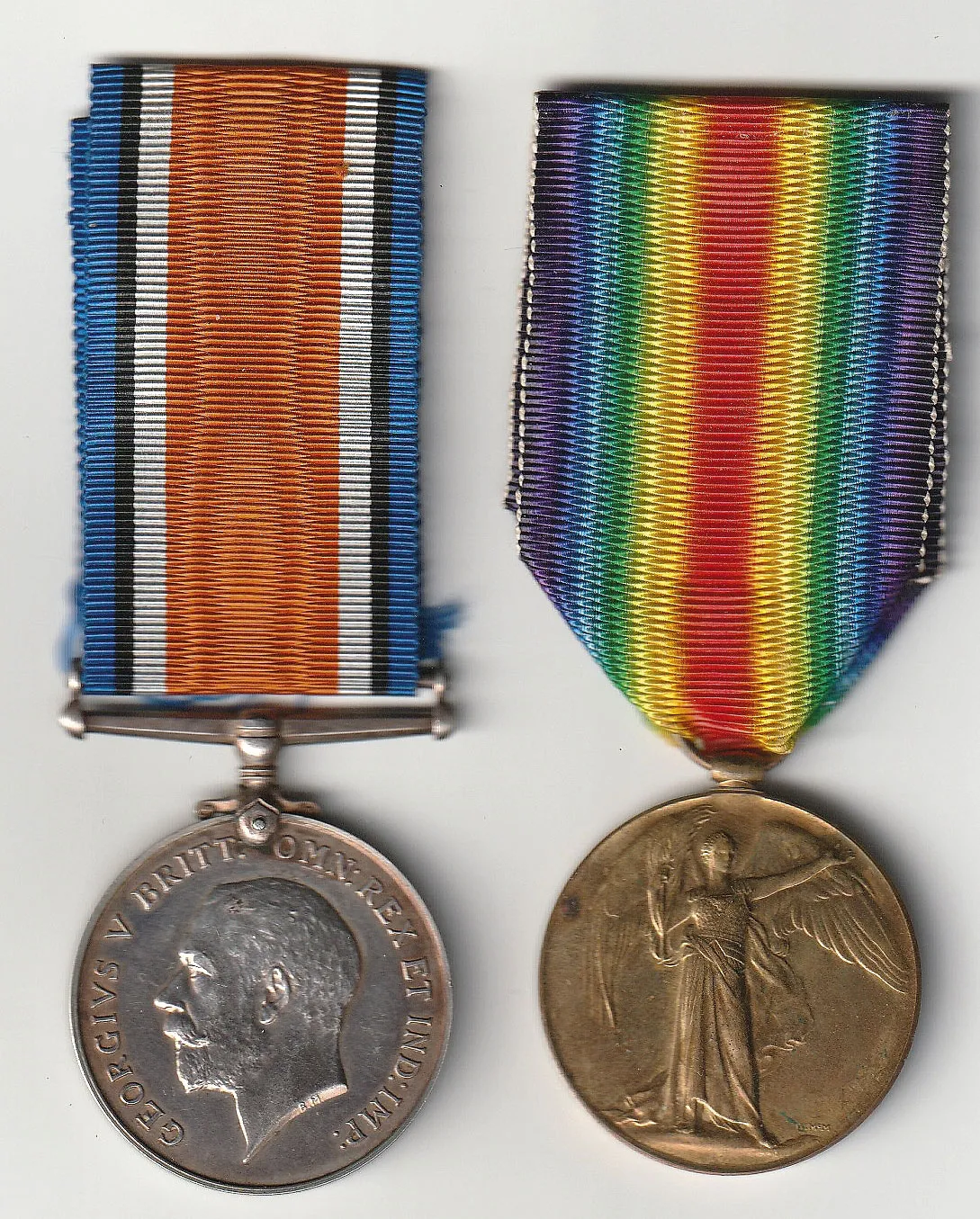
Are military medals a good investment?
Military medals are a good investment because they hold their value and are always sought after by other collectors.
Sellers and buyers of antique military medals
- Harland Military Antiques
- Dixons Medals
- Bill Friar Medals & Militaria
- British Medals by Rennie Alcock
- Peter Morris
- Liverpool Medals
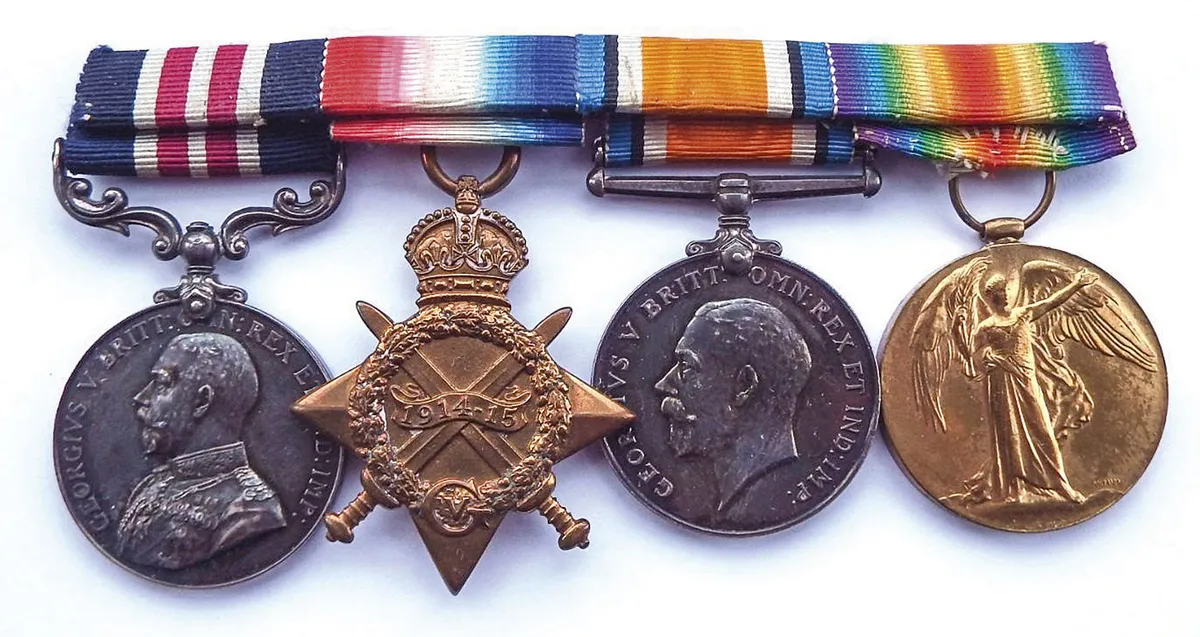
The best museums for antique military medals
The Imperial War Museum
The IWM has a fabulous collection of George and Victoria crosses put together by Lord Ashcroft.
The National Museum of the Royal Navy
The National Museum of the Royal Navy has a spectacular Medal Roomwhich proudly displays over 8,000 medals, including rare awards and 10 Victoria Crosses.
Top image: George Mawby Ingram Victoria Cross Medal 1918 including citation and other medals from the collection, estimate $400,000–$600,000 AUD, sold by Sotheby’s in The Connoisseur’s Autumn Collection sale in May 2008

